People
Principal Investigator

Lillian Fritz-Laylin
About
I am an evolutionary cell biologist, coupling comparative genomics with modern cell biology to discover core molecules and mechanisms required for cell motility. I work with a number of eukaryotic organisms, from free living amoebae to flagellated fungi, as well as human neutrophils. Fun stuff!
Education
B.A. Molecular and Cell Biology, University of California, Berkeley
Ph.D. Molecular and Cell Biology, University of California, Berkeley
Postdoc Molecular and Cellular Pharmacology, University of California San Francisco
Research Fellows
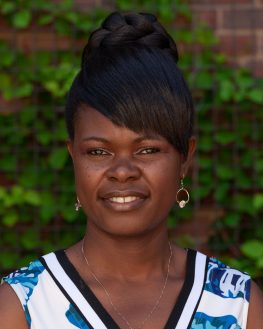
Comfort Bonney Arku
Contact
Email: cbonneyarku@umass.edu
About
Comfort Bonney Arku is studying the development of chytrid fungi and the molecular mechanisms underlying th pathogenicity of the frog-killing fungus Batrachochytrium dendrobatidis. Her current work focuses on the process of mucin-induced encystation. She is currently a Research Fellow, and will be starting as a PhD student in the Plant Biology Program in Fall 2023. Her doctoral studies will be supported in part by a prestigious Spaulding-Smith Fellowship.
Education
MPhil Botany, University of Ghana
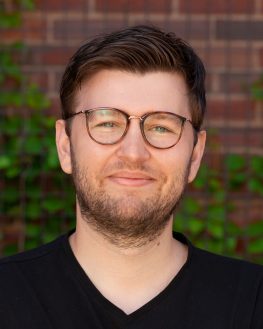
Erik Kalinka
About
Erik Kalinka is a molecular biologist and biophysicist with expertise in biomineralization and the development of genetic tools for emerging model systems. To facilitate studies on chytrid cell and evolutionary biology, he is currently working on the development of a genetic transformation system for the frog-killing chytrid fungus Batrachochytrium dendrobatidis. Erik is a research fellow in Dr. Fritz-Laylin’s lab at the University of Massachusetts, Amherst.
Education
M.Sc. Biophysics, Humboldt University of Berlin, Germany
B.Sc. Biophysics, Humboldt University of Berlin, Germany
Postdocs

Andrew Kennard
About
Dr. Andrew Kennard is a cell biologist and biophysicist, hoping to combine his expertise in microscopy and quantitative image analysis with comparative genomics to better understand the fantastic diversity of cytoskeletal organization. He is currently investigating the assembly and organization of Naegleria gruberi’s unique mitotic spindle, as a case study in evolutionary cell biology and also as a route to discover treatments for infection by the related organism Naegleria fowleri—sometimes known as the “brain-eating amoeba.” He is a postdoc in the Fritz-Laylin lab, and received his PhD in Biophysics from Stanford University. His work is supported by an NIH F32 fellowship (NIGMS).
Education
PhD Stanford University
MPhil University of Cambridge
AB Harvard College
Awards
NIH NIGMS F32
Honorable Mention, NSF GRFP
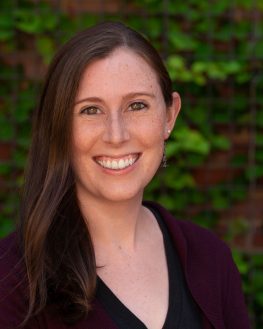
Katrina Velle
About
Dr. Katrina Velle is a cell biologist interested in actin-driven phenotypes and microbial pathogenesis. She is actively investigating the contributions of the cytoskeleton to cell migration, cell division, and osmoregulation in Naegleria gruberi—a non-pathogenic model system for the "brain-eating amoeba." Dr. Velle is a postdoctoral researcher in Dr. Fritz-Laylin’s lab at the University of Massachusetts. She received her PhD in Molecular and Cell Biology from the University of Connecticut in 2018. Her work has been supported by an NIH F32 fellowship (NIAID), and is currently funded by an NIH K99 Award (NIGMS). For more information, visit Dr. Velle’s website: katrinavelle.wixsite.com/science
Education
B.A. Biology, University of Massachusetts-Dartmouth
Ph.D. Molecular and Cell Biology, University of Connecticut
Awards
NIH NIAID F32
NIH NIGMS K99
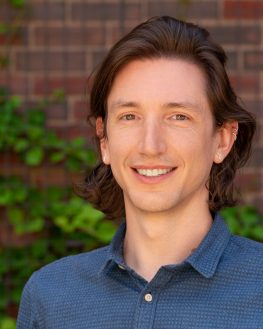
Andrew Swafford
About
Dr. Andrew Swafford is an evolutionary cell biologist interested in how sensory and motor systems have evolved and integrated into the biology of animals and fungi. His research spans organismal and molecular levels of organization—tracing the evolutionary trajectories of how animals and fungi perceive, process, and respond to their environment. As a postdoctoral research in Dr. Fritz-Laylin's lab, Dr. Swafford is currently investigating chemosensory behavior of the pathogenic chytrid Batrachochytrium dendrobatidis in response to cues from it's amphibian host. His work is supported by an NSF Postdoctoral Research Fellowship in Biology. More details can be found at www.swafford.bio
Education
B.A. Biology, Bowdoin College.
M.A. Bioinformatics and Phylogenetics, University of California Santa Barbara.
Ph.D. Ecology, Evolution, and Marine Biology, University of California Santa Barbara.
Awards
NSF PRFB
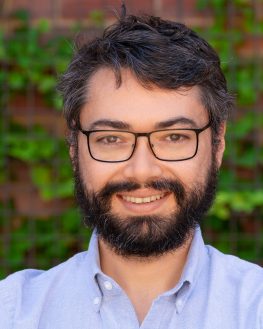
Edgar M. Medina
About
Dr. Edgar M. Medina is an evolutionary cell biologist exploring the origins of the fungal cell, their developmental programs and how they deviated from the forms we see in the Animal lineage. To tackle these questions, Edgar enlists the help of “chytrid” fungi, some of the deepest lineages in the fungal kingdom. The special biology of chytrids spured Edgar to develop Spizellomyces as the first genetically tractable member of this lineage. When chytrids form swimming cells, they undergo morphogenetic changes reminiscent of animal embryogenesis. Edgar is now identifying the cellular machinery and regulatory mechanisms that drive this process. His objective is to dissect the axes of conservation and innovation in morphogenetic programs during the rise of the fungal Kingdom. Edgar is currently a postdoctoral researcher in the Fritz-Laylin Lab and a 2020 HHMI Hanna H. Gray Fellow.
Education
Ph.D. Genetics and Genomics, Duke University, USA
M.Sc. Microbiology, Universidad de Los Andes, Bogotá, Colombia
B.Sc. Biology, Universidad de Los Andes, Bogotá, Colombia
B.Sc. Microbiology, Universidad de Los Andes, Bogotá, Colombia
Awards
2020 HHMI Hanna H. Gray Fellowship
2019 DeLill Nasser Award for Professional Development in Genetics, Genetics Society of America
2012 International Chancellor’s Award, Duke University School of Medicine.
Graduate Students

Stephanie Ridley
Contact
Email: sridley@umass.edu
About
Stephanie Ridley is interested in how biotic and abiotic signals influence fungal development. Currently, she is working on the signaling pathways associated with mucin-induced encystation in frog-killing chytrid fungi. She is also exploring how environmental factors affect the growth and overall development of these species. Stephanie is a PhD student in the MCB program at University of Massachusetts, Amherst.
Education
B.S., Biological Sciences, Hampton University
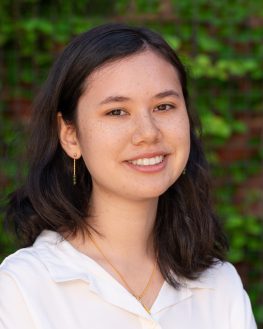
Stephanie Brody
Contact
Email: smbrody@umass.edu
About
Stephanie Brody is interested in how cells build and maintain a variety of functionally distinct actin structures from the same supply of actin monomers and regulators. She is currently studying how chytrid fungi respond to and crawl in different environments, specifically how confinement of cells affects the dynamic rearangements of the actin cytoskeleton. Stephanie is a PhD student in Dr. Fritz-Laylin's lab at University of Massachusetts, Amherst.
Education
BS, Biochemistry and Applied Mathematics, Brandeis University
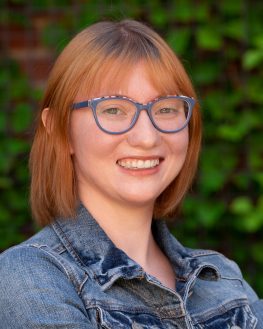
Kristyn Robinson
About
Kristyn Robinson is interested in the diversity and evolution of developmental programs and is currently investigating the intersection of development and pathogenicity using the parasitic chytrid fungus Batrachochytrium dendrobatidis. She is best known for her discovery that this species undergoes a rapid developmental switch from its dispersal to its growth form upon exposure to amphibian mucus. She has received an Honorable Mention for the NSF Graduate Research Fellowship Program, two travel grants to attend international conferences and was one of the winners of the MCB Program Fellowship competition.
Education
B.S. Biochemistry, Clemson University
Awards
Honorable Mention, NSF GRFP

Sarah Prostak
About
Sarah Prostak is an evolutionary cell biologist interested in understanding the diversification and regulation of the actin cytoskeleton. She has identified actin regulatory genes in several chytrid fungi species and cataloged the actin structures in the frog killing chytrid Batrachochytrium dendrobatidis (Bd). Sarah is a PhD student in Dr. Fritz-Laylin's lab currently working on establishing the mRNA expression profiles of actin regulatory genes throughout the life cycle of several chytrid species, including Bd. She is also interested in how Bd and other chytrids osmoregulate as well as establish cell polarity. Sarah received an Honorable Mention for the NSF Graduate Research Fellowship in 2021.
Education
BS, Biology University of Massachusetts Amherst
Awards
Honorable Mention, NSF GRFP
Alumni
Where are They Now?
- Dr. Karen Fisher @fisher_ke (Past Research Fellow) – Associate research scientist, Arizona State University
- Jose Alfredo Guzman Lopez (Past Research Fellow) – Postdoc at UC Berkley
- Shane Hussey (Past Research Fellow) – Bioinformatician
- Alena Naritsin (Past Undergraduate Student) – Medical student at St. George's University
- Mallory Kakley (Past Research Fellow) – High school science teacher